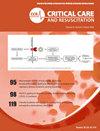日常密集主义者的人工智能伦理
IF 1.7
4区 医学
Q3 CRITICAL CARE MEDICINE
引用次数: 0
摘要
在澳大利亚的重症监护病房(icu),人工智能(AI)有望提高效率并改善患者的治疗效果。然而,在广泛采用人工智能之前,必须解决围绕人工智能的伦理问题。我们使用生物医学伦理的四大支柱——慈善、无害、自治和正义的框架来研究人工智能的伦理挑战,并讨论了对可解释性的第五个支柱的需求。我们考虑到持续的不平等、隐私侵犯和意外伤害的风险,特别是在原住民等弱势群体中。我们主张为icu制定一项国家战略,以指导人工智能的道德实施,并与现有的国家人工智能框架保持一致。我们对在ICU实施安全和合乎道德的人工智能的建议包括教育、制定指南和确保人工智能决策的透明度。协调一致的战略对于平衡人工智能的好处与在重症监护环境中保护患者和医疗保健提供者的道德责任至关重要。本文章由计算机程序翻译,如有差异,请以英文原文为准。
AI ethics for the everyday intensivist
In Australian intensive care units (ICUs), Artificial Intelligence (AI) promises to enhance efficiency and improve patient outcomes. However, ethical concerns surrounding AI must be addressed before widespread adoption. We examine the ethical challenges of of AI using the framework of the four pillars of biomedical ethics—beneficence, nonmaleficence, autonomy, and justice, and discuss the need for a fifth pillar of explicability. We consider the risks of perpetuating inequities, privacy breaches, and unintended harms, particularly in disadvantaged populations such as First Nations people. We advocate for a national strategy for ICUs to guide the ethical implementation of AI, that aligns with existing National AI Frameworks. Our recommendations for implementation of safe and ethical AI in ICU include education, developing guidelines, and ensuring transparency in AI decision-making. A coordinated strategy is essential to balance AI’s benefits with the ethical responsibility to protect patients and healthcare providers in critical care settings.
求助全文
通过发布文献求助,成功后即可免费获取论文全文。
去求助
来源期刊

Critical Care and Resuscitation
CRITICAL CARE MEDICINE-
CiteScore
7.70
自引率
3.40%
发文量
44
审稿时长
>12 weeks
期刊介绍:
ritical Care and Resuscitation (CC&R) is the official scientific journal of the College of Intensive Care Medicine (CICM). The Journal is a quarterly publication (ISSN 1441-2772) with original articles of scientific and clinical interest in the specialities of Critical Care, Intensive Care, Anaesthesia, Emergency Medicine and related disciplines.
The Journal is received by all Fellows and trainees, along with an increasing number of subscribers from around the world.
The CC&R Journal currently has an impact factor of 3.3, placing it in 8th position in world critical care journals and in first position in the world outside the USA and Europe.
 求助内容:
求助内容: 应助结果提醒方式:
应助结果提醒方式:


